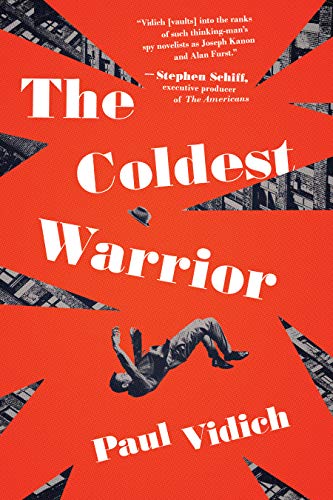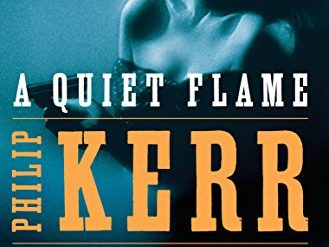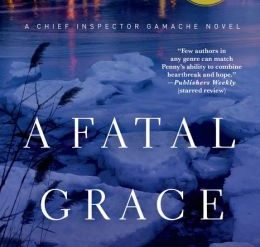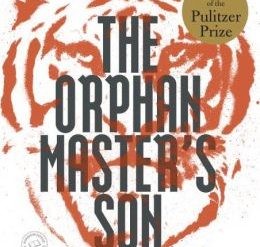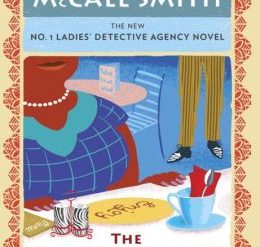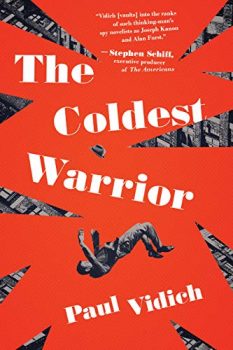
On November 28, 1953, an American scientist named Frank Olson who had been working on biological weapons for the US Army “fell or jumped” to his death from the thirteenth floor of a New York City hotel. Paul Vidich, the author of two superb previous historical spy novels, imagines what might really have happened that day in The Coldest Warrior. The story unfolds twenty-two years later as both the US Senate and the CIA undertake investigations into the Agency’s notorious Project MK-Ultra on “human behavior modification,” which administered LSD to Olson and others without their knowledge or consent.
Estimated reading time: 5 minutes
The historical setting
After an introductory chapter set in 1953 in the hotel where “Dr. Charles Wilson” (Frank Olson) dies, the scene shifts to 1975 at a hearing in the United States Senate exploring that death.
During that period, all the chickens were coming home to roost for the CIA. Its many crimes — assassinating foreign leaders, overthrowing governments, corrupting labor and student groups, and Project MK-Ultra — were coming to light in an orgy of recriminations.
The Coldest Warrior by Paul Vidich (2020) 222 pages ★★★★★
William Colby directed the CIA, one of the last of the old Cold Warriors who had graduated from the OSS into the newly-formed Central Intelligence Agency following World War II. Under Allen Dulles in the 1950s, the CIA was unhinged, engaging in often blatantly illegal operations not just around the world but within the US as well. And the long-time Director of Counterintelligence James Jesus Angleton (“James Coffin” in the novel), nearly sank the Agency in an orgy of paranoia about a “mole” in its ranks. Morale was the lowest it had ever been, and the American public had come to distrust anything the Agency touched.
Gerald Ford was in the White House. And Ford, who had been roundly criticized for pardoning ex-President Nixon, was anything but eager for a new scandal to emerge on his watch. The 1976 election was on the horizon, and Ford’s prospects were by no means secure.
A long-forgotten incident
In The Coldest Warrior, Dr. Wilson’s death, presumed a suicide, might have been but a footnote to the Agency’s history. But “an inadvertent mention in the Rockefeller Commission Report on CIA misdeeds had stirred up the forgotten incident” and stimulated interest in Project MK-Ultra. Which quickly became one of the questions that most concerned the members of the Senate subcommittee probing the Agency’s misbehavior.
An investigation into Project MK-Ultra fraught with great danger
Jack Gabriel is an old CIA hand who had known Dr. Wilson and his family. As the Agency’s moves to cover up the circumstances of Wilson’s death become increasingly clear, he finds himself drawn into an investigation out of concern for the family as well as anger toward his colleagues — and the Agency’s Director supports him. “‘There is more to Wilson’s death,’ he tells Gabriel. ‘I need to know if the men responsible are still inside. If they are, they need to go.'” And that investigation will subject Gabriel, and his own wife and daughter, to great danger, as those who were responsible for Wilson’s death strike out in desperation over the threat to their careers and their reputation.
The character who “made the poisoned cigar to kill Fidel Castro”
One of the more compelling characters in The Coldest Warrior is “Dr. Herb Weisenthal,” the Director of the CIA’s Technical Services division. (In reality, the man was Dr. Sidney Gottlieb.) Vidich describes him as “the spy whose Technical Services staff had made the poisoned cigar intended to kill Fidel Castro” and who traveled to the Congo with poisoned toothpaste to assassinate Congolese President Patrice Lumumba. (Someone, possibly involving the CIA, actually managed to kill Lumumba another way.) With subject matter like this, it’s tough for a novelist to outdo reality.
About the author
The Frank Olson story is personal for Paul Vidich. As he writes in his acknowledgments, his aunt Alice was Frank’s widow, and she personally testified to the lies she was told by the US Government that he describes in The Coldest Warrior. (One of Olson’s sons, Eric Olson, built a website for the Frank Olson Project. You can access it and learn more at https://frankolsonproject.org/.) Yet Vidich’s personal connection to the facts behind this tale come as a surprise. There’s no hint in this top-flight espionage thriller that the author has an ax to grind.
For related reading
The author is one of The best spy novelists writing today.
There’s an in-depth interview about this book with Paul Vidich on CrimeReads (March 6, 2020).
I’ve also reviewed four other excellent historical spy novels by Paul Vidich:
- An Honorable Man (The Cold War, the early CIA, and the McCarthy Era)
- The Mercenary (A superb Cold War thriller from Paul Vidich)
- The Good Assassin (A compelling spy novel by Paul Vidich set during the Cuban Revolution)
- The Matchmaker: A Spy in Berlin (A dangerous spy game in Berlin before the fall of the Wall)
And you can find all of Vidich’s books at A newcomer who writes superb spy novels.
You might also enjoy my posts:
- The 15 best espionage novels
- 20 good nonfiction books about espionage
- Top 10 mystery and thriller series
- 20 most enlightening historical novels
- Top 10 historical mysteries and thrillers
And you can always find my most popular reviews, and the most recent ones, on the Home Page.

